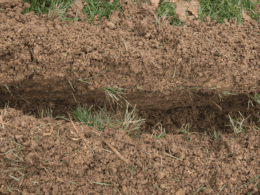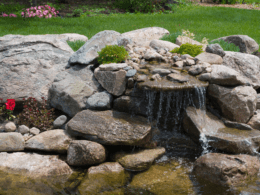Quick Takeaways
- Epsom salts can effectively kill a tree stump and speed up the decomposition process.
- To use Epsom salts, drill holes in the stump and fill them with 100-percent Epsom salt, then slowly add water.
- Check on the stump every couple of weeks and reapply salt as necessary until the stump dies off.
- Once the stump is dead, you can use a high-nitrogen fertilizer such as cow manure to quicken the decomposition process.
Killing a Tree Stump with Epsom Salts
You can easily kill a tree stump by using Epsom salts, which is a cheap and effective method. It involves drilling holes in the stump and filling them with a moist mixture of Epsom salt and water. The salt will then seep into the stump and kill it from the inside out. This method is much safer and more environmentally friendly than using harsh chemicals or burning the stump. Epsom salt is a natural mineral that is safe for the environment and won’t harm your plants or soil. It’s also very effective at killing tree stumps, especially when used in combination with drilling holes in the stump. This allows the salt to penetrate deeper into the root system, ensuring that the stump is completely dead. Plus, once the stump dies off, the decomposition process will break down the wood, providing a natural source of compost or mulch for your garden.Can Epsom Salts Help Get Rid of Dandelions in My Yard?
Can Epsom salts help get rid of dandelions in your yard? This is a common question for those seeking weed-free yard tips and tricks. While Epsom salts have many benefits for plants, they are not effective in eliminating dandelions. Instead, focus on proper lawn care practices like regular mowing, adequate watering, and applying targeted weed control products to maintain a beautiful, weed-free yard.
Application Process
First, drill holes into the stump and fill them with a mixture of water and Epsom salt to speed up the decomposition process. The drilling technique ensures that the salt solution reaches deep into the stump, killing the roots. Make sure to drill the holes at an angle, so the salt solution doesn’t spill out. Once you have drilled the holes, mix one gallon of Epsom salt with two gallons of water and fill the holes with the solution. Be sure to add water slowly so that the salt is moist. Managing moisture is essential to the success of this process. You need to prevent rainwater from diluting the salt solution, so cover the stump with a tarp or thick plastic sheeting. Check on the stump every couple of weeks and reapply salt as necessary. Use the table below to guide you on how much Epsom salt solution to use depending on the diameter of the stump. With proper drilling techniques and moisture management, you can expect to see the stump die off in four to eight weeks.| Stump Diameter | Amount of Epsom Salt Solution |
|---|---|
| 4″ | 1/4 gallon |
| 8″ | 1/2 gallon |
| 12″ | 1 gallon |
| 16″ | 1 1/2 gallons |
| 20″ | 2 gallons |









